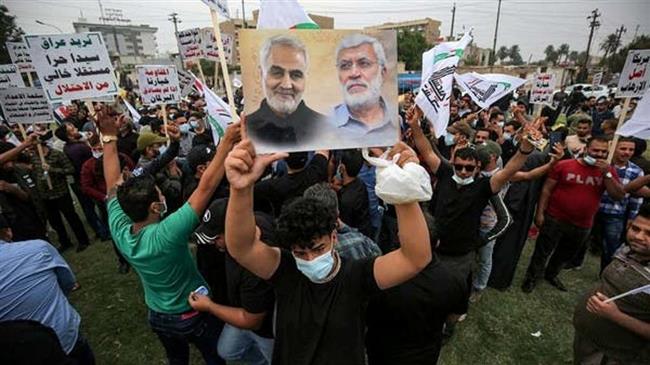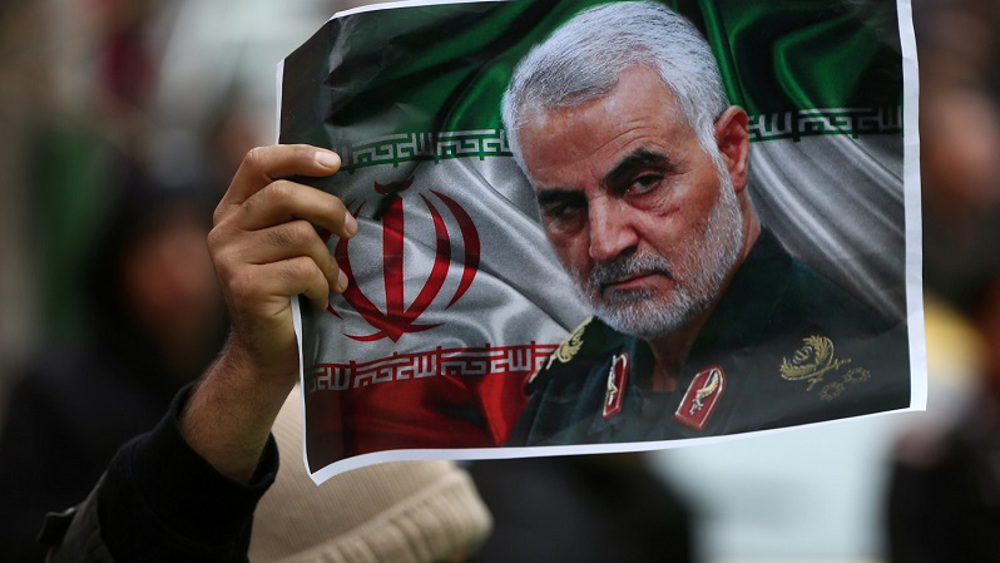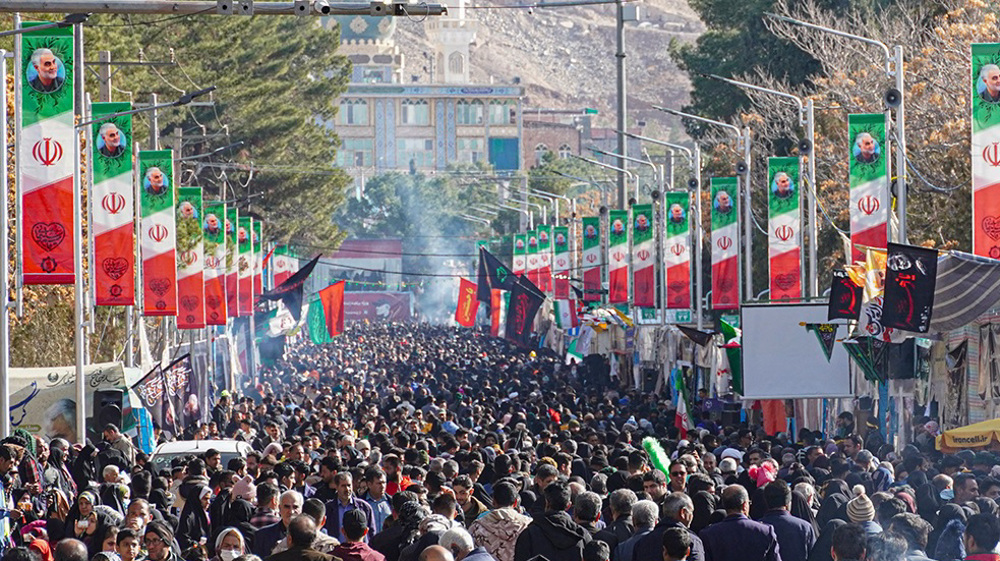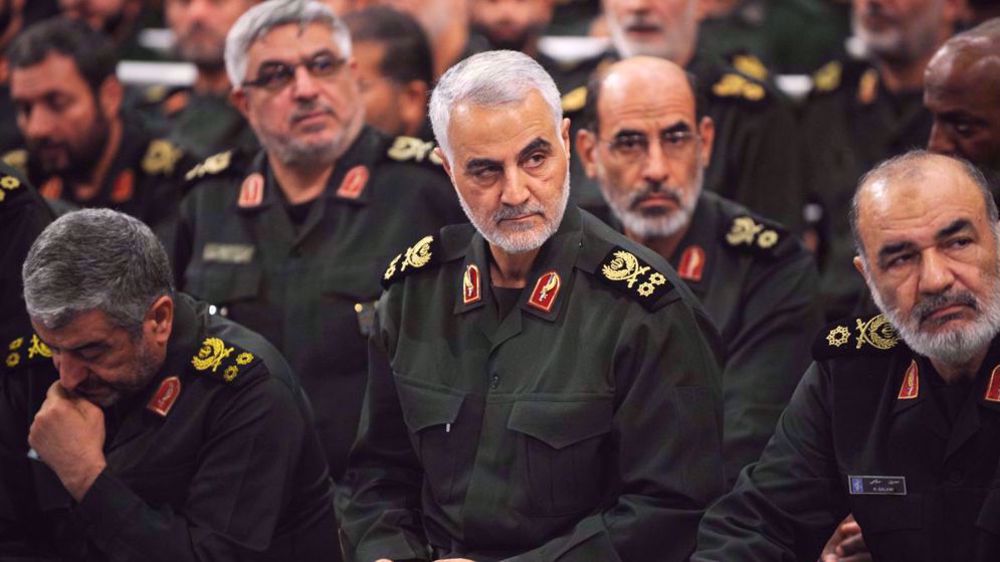Iraq to issue court orders for suspects in assassination of Lt. Gen. Soleimani, PMU's al-Muhandis
A senior Iraqi judicial official says appropriate court orders will be issued in the coming days regarding the suspects in the January 3 assassination of Lieutenant General Qassem Soleimani and Abu Mahdi al-Muhandis outside Baghdad International Airport.
Haider Ali Nouri, a supervising member of the Information Center of the Iraqi Supreme Judicial Council, made the announcement in a statement on Monday as he was explaining the latest developments related to the case of the assassination of General Soleimani, the then commander of the Quds Force of the Islamic Revolution Guards Corps (IRGC), and al-Muhandis, the former deputy commander of Iraq’s Popular Mobilization Units (PMU).
The assassination operation went ahead on a direct order from President Donald Trump, the outgoing White House occupant.
“The Iraqi Judiciary has made good progress in the investigation of this incident and intends to put a definite end to it,” the senior judicial official said.
The Iraqi official added that the Special Court of Inquiry has completed the case and collected all the evidence by gathering the statements and testimony of witnesses to the incident, such as the staff of the Baghdad International Airport and the security forces present there.
Nouri said that the results obtained through the work of the investigation committee, review of relevant footages and official statements issued by the Trump administration are being finalized.
“As soon as the investigation is completed, appropriate court orders will be issued in the coming days for suspects involved in the assassination operation,” he said.
Hossein Amir-Abdollahian, who advises Iran’s Parliament speaker on international affairs, also announced on Sunday that Iran has drawn up a list of 48 individuals against whom legal action will be taken in relation to the assassination.
Both martyred commanders were viewed by the world's freedom-seeking people as heroes who risked their lives taking on Daesh, the world’s most notorious terrorist group, on the battlefield. They played a key part in defeating the terror outfit.
Several million people attended the funeral processions held for the commanders in the Iraqi cities of Kadhimiya, Baghdad, Karbala and Najaf as well as the Iranian cities of Ahvaz, Mashhad, Tehran, Qom and Kerman.
In response, the IRGC fired volleys of ballistic missiles at two US bases in Iraq on January 8. According to the US Defense Department, more than 100 American forces suffered “traumatic brain injuries” during the counterstrikes. The Corps, however, says Washington uses the term to mask the number of the Americans who perished during the retaliation.
Iran has also issued an arrest warrant and asked Interpol for help in detaining Trump, who ordered the assassination, and several other US military and political leaders behind the strike.
Anti-American sentiments have been running high in Iraq after the two senior commanders were assassinated in Baghdad, with Iraqi lawmakers unanimously passing a bill on January 5 that mandated the withdrawal of all foreign troops from Iraq.
Iraqi resistance groups have pledged to take up arms against US forces if Washington fails to comply with the parliamentary order.
VIDEO | Japan starts voting as polls suggest Takaichi’s coalition set to win
Israel killed 37 Palestinian children in 2026 Gaza attacks: UNICEF
Israeli army, settlers intensify violent displacement of Palestinians across West Bank: Report
Israeli general admits failure, heavy losses in genocidal war on Gaza
VIDEO | London's Muslim Shopping Festival kicks off
VIDEO | Killings continue in Gaza as aid restrictions, arrests draw intl. criticism
VIDEO | Defending sovereignty: Iraq's annual conference celebrates anti-terror icons
Mossad-linked terrorist ringleader trained for ‘urban warfare’ neutralized by Iranian intel. forces













 This makes it easy to access the Press TV website
This makes it easy to access the Press TV website